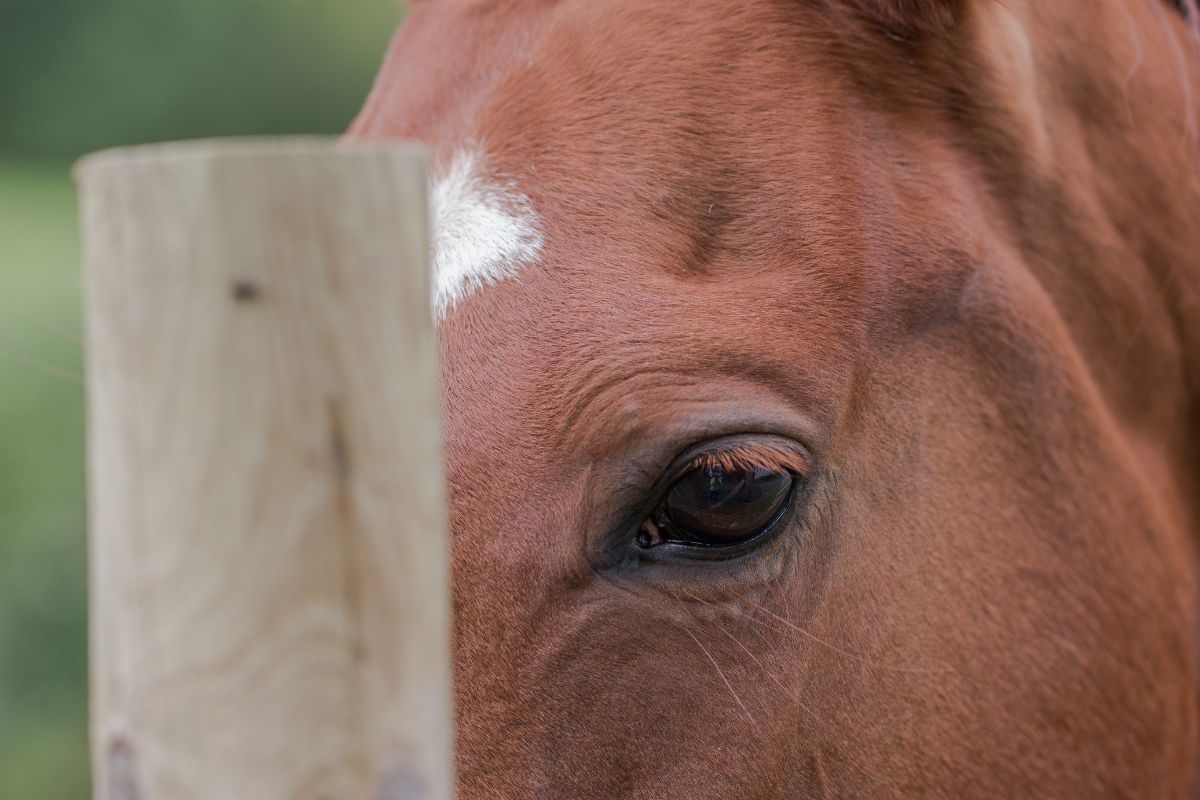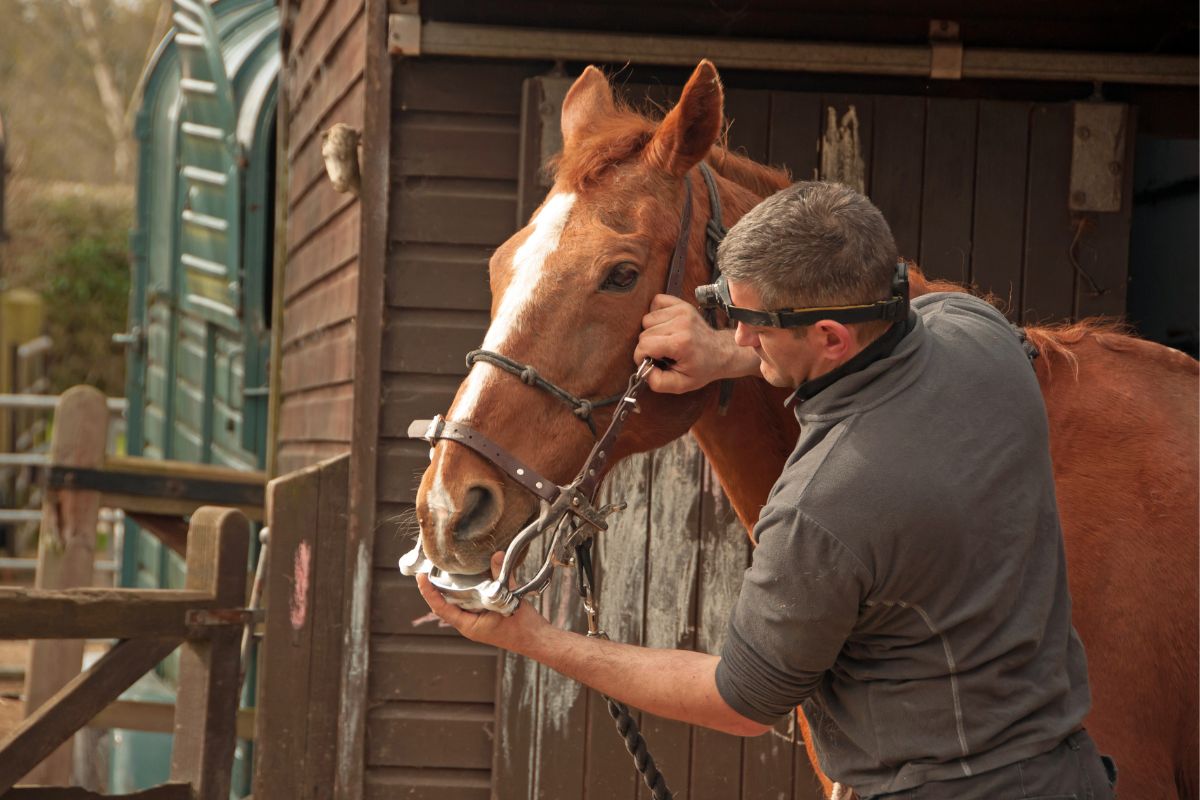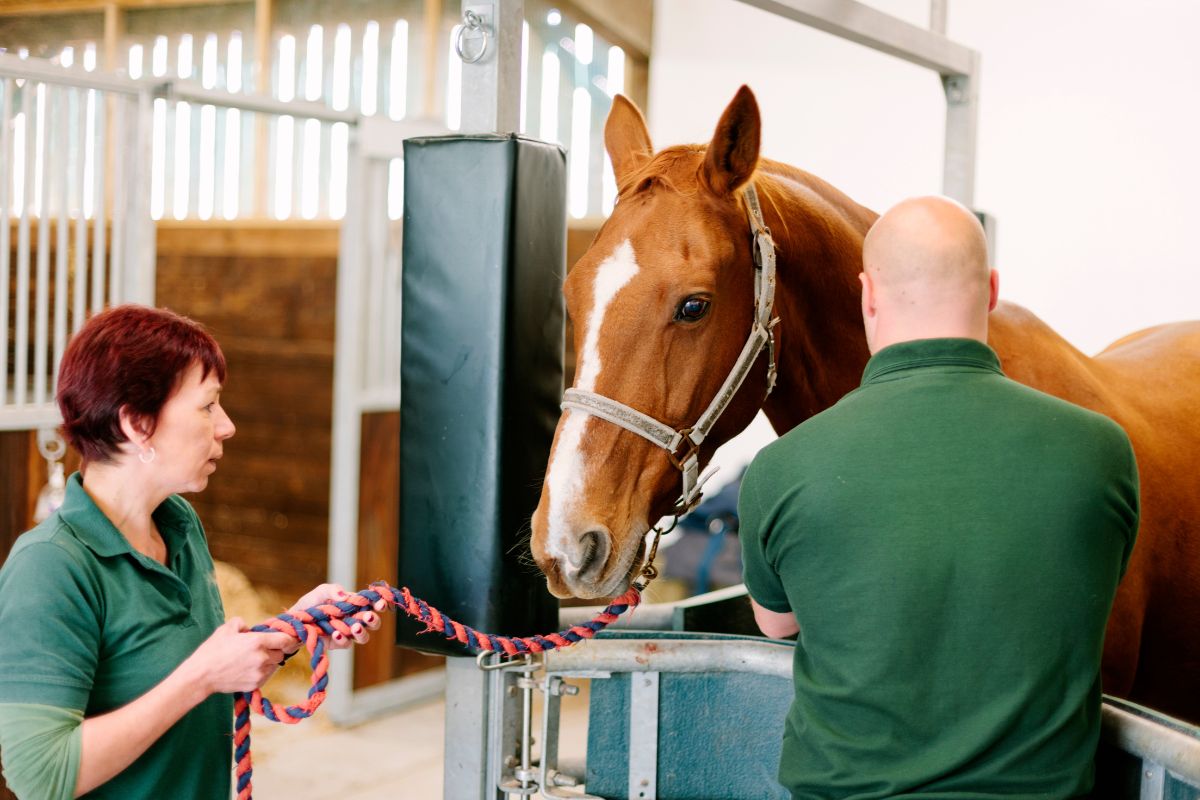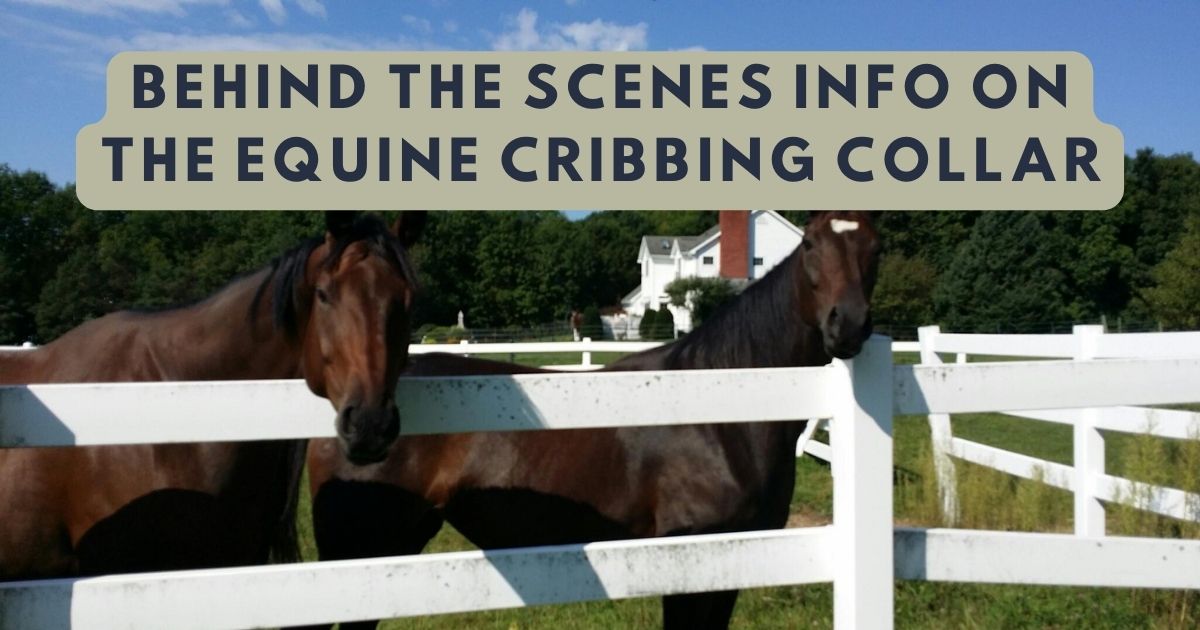If you have an equine friend that cribs, you’re in luck! Here is some behind-the-scenes information on the equine cribbing collar.
This collar will discourage your horse from cribbing without causing pain or discomfort. The Equine Cribbing Collar material is durable and adjustable to fit any size horse. It’s discreet, so your horse can wear it without feeling self-conscious. Keep Reading for this helpful product.

What is a Horse Cribbing Collar?
A cribbing collar horse is a device placed around a horse’s neck to prevent it from arching its neck and biting down on a fence, stall door, or other objects. The collar applies pressure to the horse’s neck whenever it tries to crib, which is an instinctive behavior for many horses.
While the collar will not stop a horse from cribbing altogether, it can effectively discourage the behavior.
What is Cribbing in Horses?
It is the act of a horse sucking in air through its mouth. The horse will bite into something solid, such as a fence, stall edge, water bucket, or anything else available, before flexing its neck and sucking in the air.
While cribbing poses no direct health risks, cribbing horse teeth can become abnormally worn due to biting on objects to crib, and dental issues can lead to severe problems if left untreated. It can, however, be an addictive behavior that is difficult to break.
There are several theories as to why horses crib, but the most likely explanation is that it releases endorphins in the brain, providing the horse with a feeling of pleasure or satisfaction.
How Does the Equine Cribbing Collar Work?
The Equine Cribbing Collar works by preventing the horse from being able to arch its neck and suck in air. The collar is placed around the horse’s neck and is adjustable to ensure a snug, comfortable fit.
The collar is durable and will not rust or break easily. The Equine Cribbing Collar is an easy and affordable way to help prevent your horse from cribbing. It is comfortable to wear and will not cause your horse any pain or discomfort.

How to Stop a Horse From Cribbing?
There are horse cribbing cures, but you can try several solutions to discourage the behavior.
One of the most effective ways to stop a horse from cribbing is to use a cribbing collar. The collar applies pressure to the horse’s neck whenever it tries to crib, which is an instinctive behavior for many horses.
To help stop your horse from cribbing, decrease the boredom and stress in its life as much as possible. If conditions allow, let your horse spend plenty of time grazing in the pasture with other horses–since they are social animals, this will reduce stress.
Although it may not be another horse, goats and chickens can provide social interaction for those who need it. It’s also essential to give them regular exercise to use up any extra energy and help keep their minds active.
It may be helpful to change your horse’s diet. A good suggestion is to either decrease or remove grain from a cribber’s daily food intake and give it roughage periodically throughout the day. Removing grain from their diet is challenging for horses already underweight, but it could potentially end the behavior.
Another way to prevent a horse from cribbing is to provide it with toys or other objects it can chew on. This can help satisfy the horse’s urge to chew and reduce the temptation to crib.
You can lessen cribbing by making the surfaces your horse cribs on simultaneously more and less desirable. For example, you could cover the tops of doors with rounded metal edges, paint boards, and doors with anti-chew spray or cayenne pepper—deterring your horse from chewing while also giving them a slight zing.
A surgical horse cribbing solution involves removing bits of certain muscles and nerves in the neck, but it requires general anesthesia. Even after surgery, some horses’ behavior may not improve entirely. Many horse owners find the cost of this type of emergency hospitalization prohibitive and instead choose other treatment options.
You can also try to use various homemade cribbing solutions to discourage this behavior, such as:
Using a simple rope halter. Tie the rope around the horse’s neck so it cannot lower its head to crib. This will not only stop the horse from reaching the ground to crib but will also put pressure on the horse’s neck whenever it tries to crib, eventually discouraging the behavior.
Another homemade solution is to mix 1 part water with two parts vinegar and apply it to surfaces the horse typically cribs on. The vinegar smell will deter the horse from cribbing, and over time the horse will associate cribbing with the unpleasant smell and will be less likely to do it.
A final homemade solution is to feed the horse a fiber and low in sugar diet. This will help reduce the number of endorphins released in the horse’s brain, which is one of the reasons horses crib in the first place.
Cribbing Horse Facts
- Horses that crib are more likely to be male than female.
- Horses that crib are more likely to be stabled than those kept in the pasture.
- Cribbing is more common in colder climates than in warmer ones.
- Cribbing can lead to weight gain in horses, as they can consume more food when they crib.
- Horses that crib is more likely to be from Europe than from other parts of the world.
- Cribbing can also lead to dental problems, as the horse’s teeth grind against the hard surfaces it cribs on.
- Cribbing can be addictive, and horses that crib often do so for long periods.
- Cribbing is a compulsive behavior, and horses that crib cannot help it.
- Cribbing is not dangerous to horses, although it can cause them to gain weight and develop dental problems.
- There is no known cure for cribbing, but there are ways to discourage the behavior.
What are the Alternatives?
Several products on the market claim to stop horses from cribbing, but not all are effective. Cribbing collars are one of the most popular solutions, but they are only sometimes comfortable for horses and can cause irritation.
Several home remedies can be effective in deterring cribbing, such as:
A Cribbing Muzzle
Cribbing muzzles are an option that many explore. They look similar to grazing muzzles, but most have metal bars across the bottom, allowing horses full access to eat and drink while stopping them from cribbing. These muzzles don’t cause discomfort but may be more frustrating than cribbing collars.
Feed it Plain Oats
Plain oats are much healthier for horses because they have lower sugar content and are less likely to cause cribbing than other types of grain. When feeding plain oats to your horse, give it plenty of hay to give it a healthy balance of nutrients.
If your horse needs more calories, you can supplement its hay with low-sugar/low-starch grain or corn oil.
Housing Outside
If your horse has just begun cribbing or you would like to reduce the frequency, housing it outside may help. Cribbing generally decreases with more time spent eating grass or hay outdoors.
Vinegar
You can use a vinegar solution to spray surfaces the horse cribs on. The vinegar smell will deter the horse from cribbing, and over time they will associate cribbing with the unpleasant odor. This is a relatively cheap and easy solution, but you must reapply it regularly.
Bitter Taste Solutions
Several commercial products are available applied to surfaces the horse cribs on. These solutions have a bitter taste that horses do not like, so they will avoid cribbing on surfaces you have treated. You must reapply these products regularly, and some horses may become immune to the taste.
Electric Fences
For some horses, the cribbing instinct is so strong that nothing else will work. In these cases, the only solution may be to keep them away from cribbing surfaces with an electric fence. This will not stop the horse from cribbing but will prevent them from damaging fences and other surfaces.
Cribbing is a complex behavior, so only a solution will work for some horses. It is essential to try different solutions and find the one that works best for your horse.
Are Cribbing Collars Safe?
Cribbing collars are safe when used as directed. They should be snug but not too tight, and they should not restrict the horse’s breathing or movement. If you are concerned about the safety of cribbing collars, you can always consult with a veterinarian.
When used correctly, cribbing collars are an effective way to reduce or eliminate cribbing behavior. If you have a horse struggling with cribbing, consider using a collar to help him break the habit.

Summary
So there you have it, the inside scoop on the equine cribbing collar. The cribbing collar is a device that helps horses who are prone to cribbing or chewing on objects in an attempt to self-soothe.
While the collar may seem cruel to some, it prevents horses from cribbing. If you have a cribbing horse or are considering using a collar to avoid cribbing, consult a veterinarian to ensure that the collar is fitted correctly and used safely.
